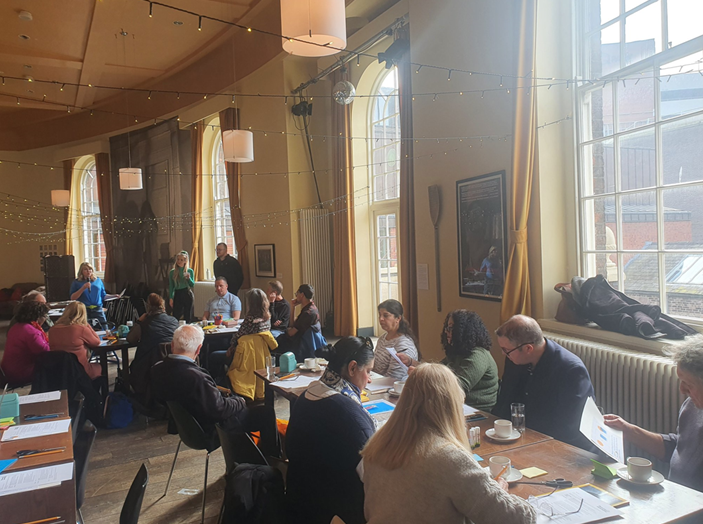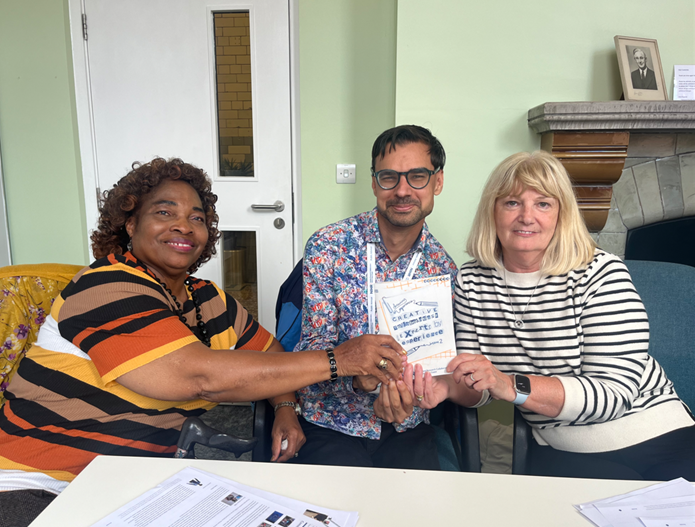Drawing on experience – Using creative methods to explore the experiences and impact of public advisers in ARC NWC

Public Advisers have a critical role in ARC-North West Coast and as well as coproducing all research related projects/PhDs/Internships they are an integral part of ARC decision-making processes, ranging from day-to-day research and governance activities and comms, to determining strategic direction as co-leads of research themes.
Evaluating the impact of public involvement in research can sometimes default to activities like focus groups or surveys that may limit who can get involved in the evaluation process or indeed what is evaluated.
Drawing on Experience is a project led by Dr Nicola Harman, a senior lecturer in trials methodology researcher in the Department of Health Data Science at the University of Liverpool. Selina Wallis the manager of Public Involvement at ARC NWC (alongside a team including senior academic Prof Paula Byrne, Research Associate Dr Shaima Hassan and Ruth Ball our administrator Get Involved – NIHR) approached Nicola to co-design a bespoke approach to evaluating the impact on involvement in the Arc on our public advisors. Working with ARC-NWC public advisers we explored whether visual, arts-based methods could be used to support discussions and share public adviser experiences of involvement and the impact of this involvement on research but also themselves and wider communities.
We held a one day workshop in March 2024 at the Bluecoat Liverpool, with 17 ARC NWC public advisers. Nicola together with Mark Roughley (Liverpool John Moores University), printmaker Abby Sumner, and the ARC NWC public adviser team facilitated the workshop. We asked public advisers to reflect on their involvement experiences, how it started, how things were going, and what they future might look like including the impact of their involvement.
It was then time to get creative using collage. Collage is a technique that pieces together words, images, pieces of paper, photographs etc to make an image. It’s easy to do and can be used in a non-linear way taking inspiration from any aspect of someone’s involvement experience. Lots of materials were provided and advisers could also bring with them any images or text they wanted to use.
The artwork created on the day was brought together in a collaborative zine. A zine is an independently published work that can be created individually or collaboratively, there are zine libraries across the country including at the Wellcome collection. .
Abby printed the zine on a risograph printer using soy based inks and the final copies were shared at a Public Adviser Forum in July. We took this opportunity to reflect on the process of creating the zine, and peoples responses to the finished work.
“Personally I found the process of creating the Zine a radical departure from the ordinary ways of considering the development and exploring research. It concentrated on the visual aspects of communication by making collages and diagrams. I found this to be stimulating and thoughtful as a therapeutic group activity. I would certainly encourage the creation of many more Zines in the future.I would like the opportunity to participate in making more Zines, perhaps based on different
topics and subjects.”
Dr Robert G MacDonald (Public Advisor)
You can read the zine here:
Here is the DOI for the Zine: https://doi.org/10.17638/datacat.liverpool.ac.uk%2F2736
Here is a short video about creating the Zine.
We look forward to incorporating more art based methods in our work with public advisors in our work in the future
